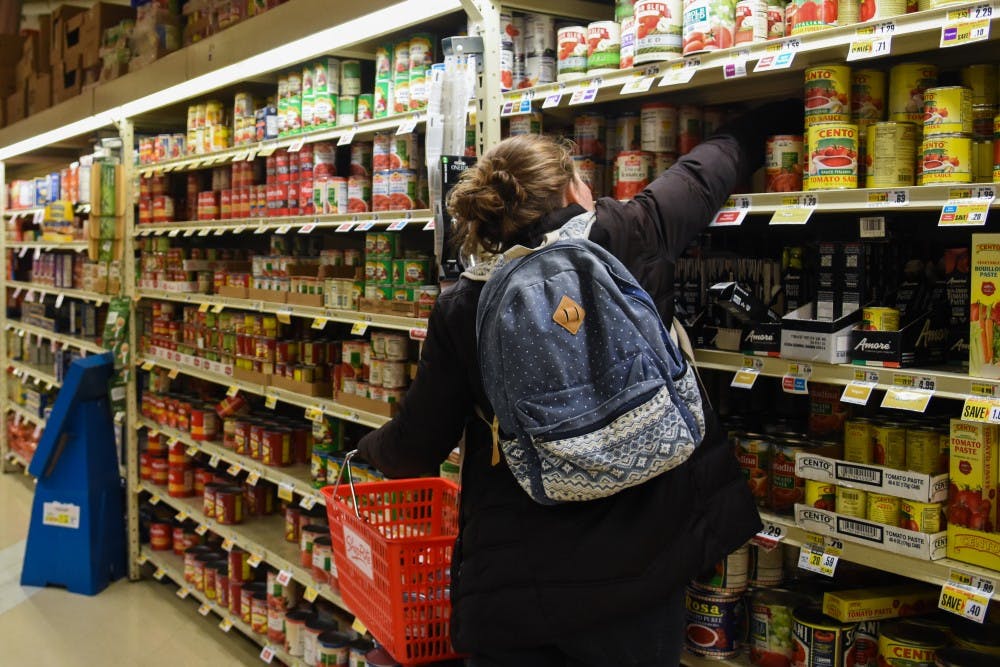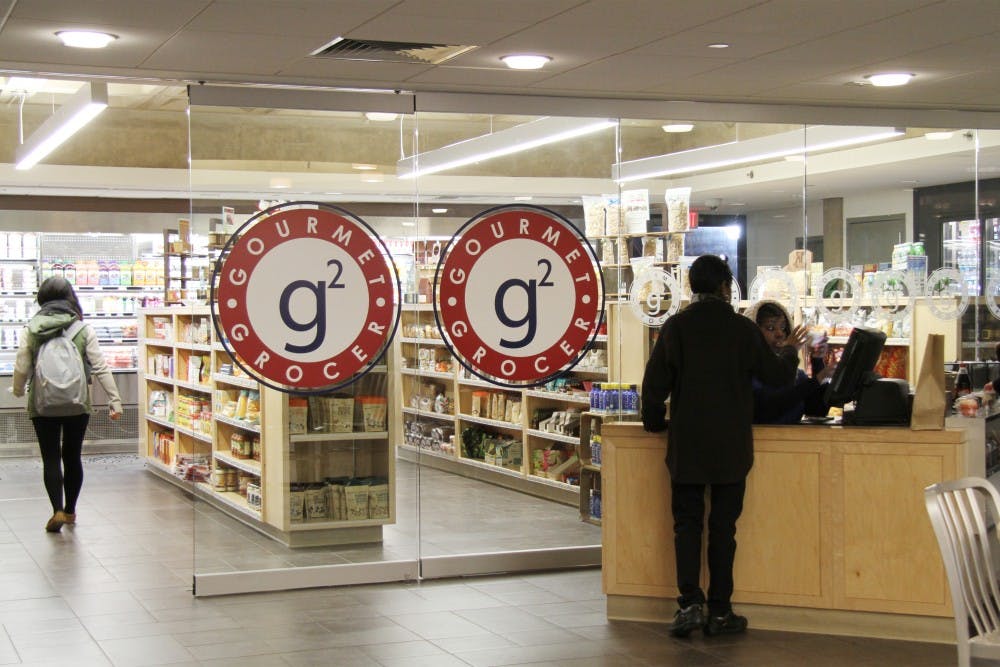
Students categorized as "highly-aided" will have more subsidized meal options than in previous years for those staying on campus over Thanksgiving break.
Approximately 350 highly-aided students will receive re-loadable debit cards from Student Registration and Financial Services to pay for meals over the break. This is an increase from the roughly 125 students who participated in the program last year.
The students will receive $20 for every day of break that they are on campus, except for Sunday, when they will receive $10 and have access to dining halls and retail dining options.
Last year, the program's availability to "high-need" students sparked confusion about who within the first-generation, low-income community qualified as high-need. Following the terminology change from "high-need" to "highly-aided," however, the eligible population for the program will remain the same.
"Occasionally, we've been able to make exceptions for people with extenuating circumstances, but by and large we're sticking to the population of highly-aided students," Director of Communications in the Division of Finance Paul Richards said, adding that there have been "very few" requests from FGLI students who are not highly-aided to participate in the program.
This re-loadable debit card system, Richard said, will be used for Thanksgiving, winter, and spring break for this academic year.
Last spring break, SRFS piloted a program where about 220 students received $20 gift cards to Fresh Grocer for each day they were on campus. Richards said surveys suggested students "almost universally" preferred the card because of its flexibility. Based on this feedback, Richards said that SRFS then modified this program to provide re-loadable debit cards rather than Fresh Grocer gift cards.
College senior Raisa Shah said this option is a considerable improvement from the services provided during her freshman year. Shah, who is highly-aided, remained on campus that year over break because of the spike in flight prices back to her home state of New Mexico.
She also said that other than a free dinner at the Greenfield Intercultural Center and access to the GIC food pantry, there were not many resources for FGLI students during that Thanksgiving break.
"FGLI resources have developed so much since my freshman year here," Shah said. "A lot of these things that exist now did not exist that year."
For the past two Thanksgiving breaks, highly-aided students had the option to pick up free packaged meals at Gourmet Grocer, a service which was spearheaded by Penn Dining and SRFS. Penn Dining also provided a similar service last winter break, when high-need students could pick up free meals from the Sheraton Hotel.

College junior Sebastian Gonzalez said that, while this program was generally beneficial, students had limited choices for their meals. Gonzalez, who is the internal outreach chair for Penn First, also noted that not all students who participated in the program had microwaves to heat up their food.
"It wasn't a flexible program," Gonzalez said.
Richards also echoed this statement.
"I think students were really grateful that the University was trying to address this problem," Richards said. "But I think rightfully they pointed out some issues with it that made it a little more challenging."
Gonzalez said this program has received positive feedback from students and is a definite improvement from the prior system.
"I think they definitely took a lot of what students had to say into account," Gonzalez said.
The Daily Pennsylvanian is an independent, student-run newspaper. Please consider making a donation to support the coverage that shapes the University. Your generosity ensures a future of strong journalism at Penn.
Donate







